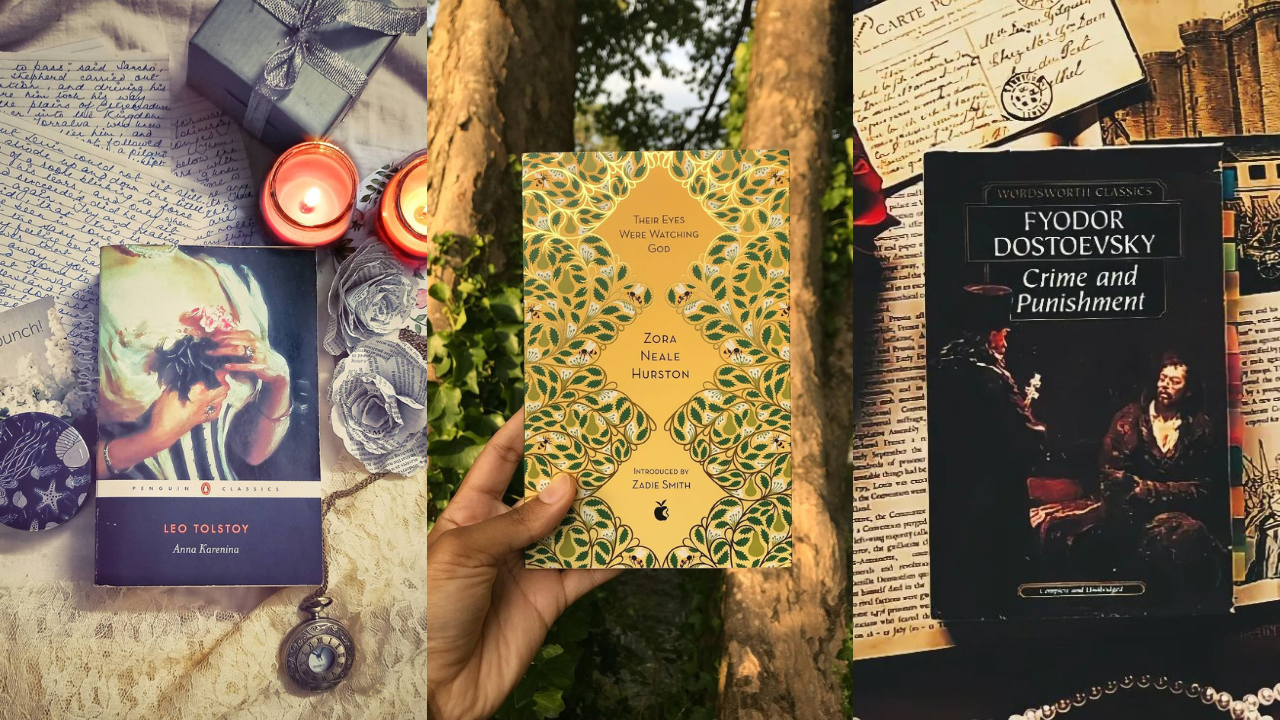15 classic books that every literature lover should have on their bookshelf (Image credit: Instagram)
A well-stocked bookshelf is a treasure trove of timeless wisdom, stories and ideas. For any lover of literature, certain classics They are essential books that have marked the course of literature, influenced countless writers, and continue to resonate with readers of all generations. Here are 15 classic books that deserve a place on every literature lover’s shelf.
1. George Orwell’s 1984
George Orwell’s 1984 is a dystopian masterpiece that explores the horrific consequences of totalitarianism, surveillance, and mind control. Set in a bleak future where the government, led by Big Brother, exercises total control over its citizens, the novel delves into the loss of individuality and freedom. 1984 remains a chilling warning of what can happen when power goes unchecked, making it as relevant today as it was when it was first published in 1949.
2. Pride and Prejudice by Jane Austen
Jane Austen’s ‘Pride and Prejudice’ is a timeless romance that offers sharp social commentary on the class structure of early 19th-century England. The novel follows the strong-willed Elizabeth Bennet as she deals with love, family expectations, and societal pressures. Her relationship with the proud Mr. Darcy is one of the most iconic in literature. Austen’s wit, memorable characters, and exploration of love and marriage continue to captivate readers, making this novel a must-read classic.
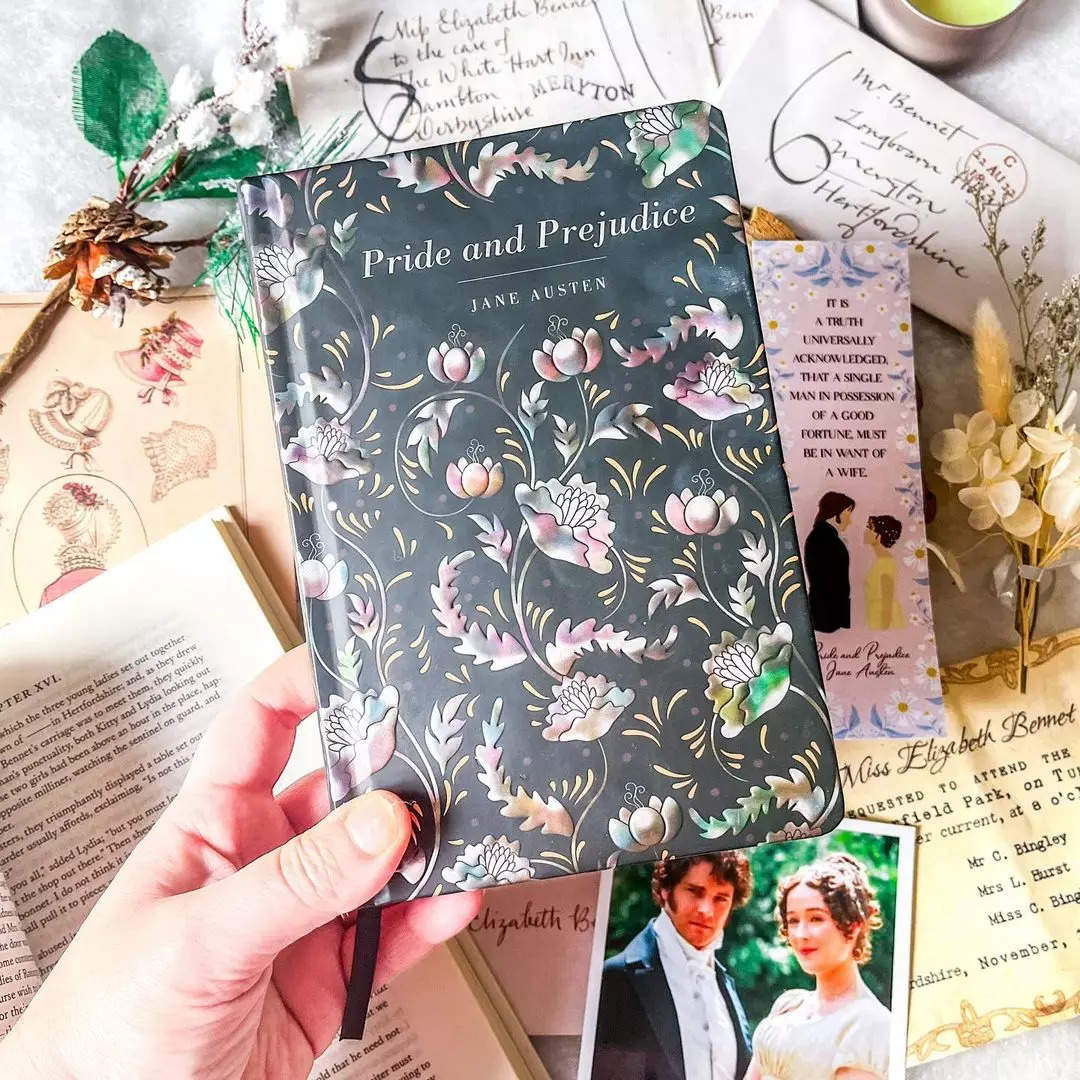
3. Anna Karenina by Leo Tolstoy
Tolstoy’s Anna Karenina is a story of love, betrayal, and social reckoning set against the backdrop of Russian high society. The novel intricately intertwines the lives of several characters, with the tragic love story between Anna and Count Vronsky as its central theme. Tolstoy’s exploration of passion, moral dilemmas, and the human condition is profound and moving, making Anna Karenina one of the greatest novels ever written.
4. Crime and Punishment by Fyodor Dostoevsky
Crime and Punishment is Fyodor Dostoevsky’s intense exploration of guilt, redemption, and the psychological turmoil of his protagonist, Raskolnikov. The novel follows Raskolnikov as he commits murder, believing himself to be above the moral law, only to be consumed by guilt and paranoia. Dostoevsky delves into the complexities of the human psyche, making this novel a captivating read that raises profound questions about morality, justice, and the nature of evil.
5. East of Eden by John Steinbeck
John Steinbeck’s East of Eden is an epic that spans generations and explores themes of good and evil, free will, and the search for identity. Set in California’s Salinas Valley, the novel draws parallels to the biblical story of Cain and Abel through the lives of two families. Steinbeck’s richly drawn characters and exploration of human nature make East of Eden a powerful and evocative novel that is considered one of his finest works.
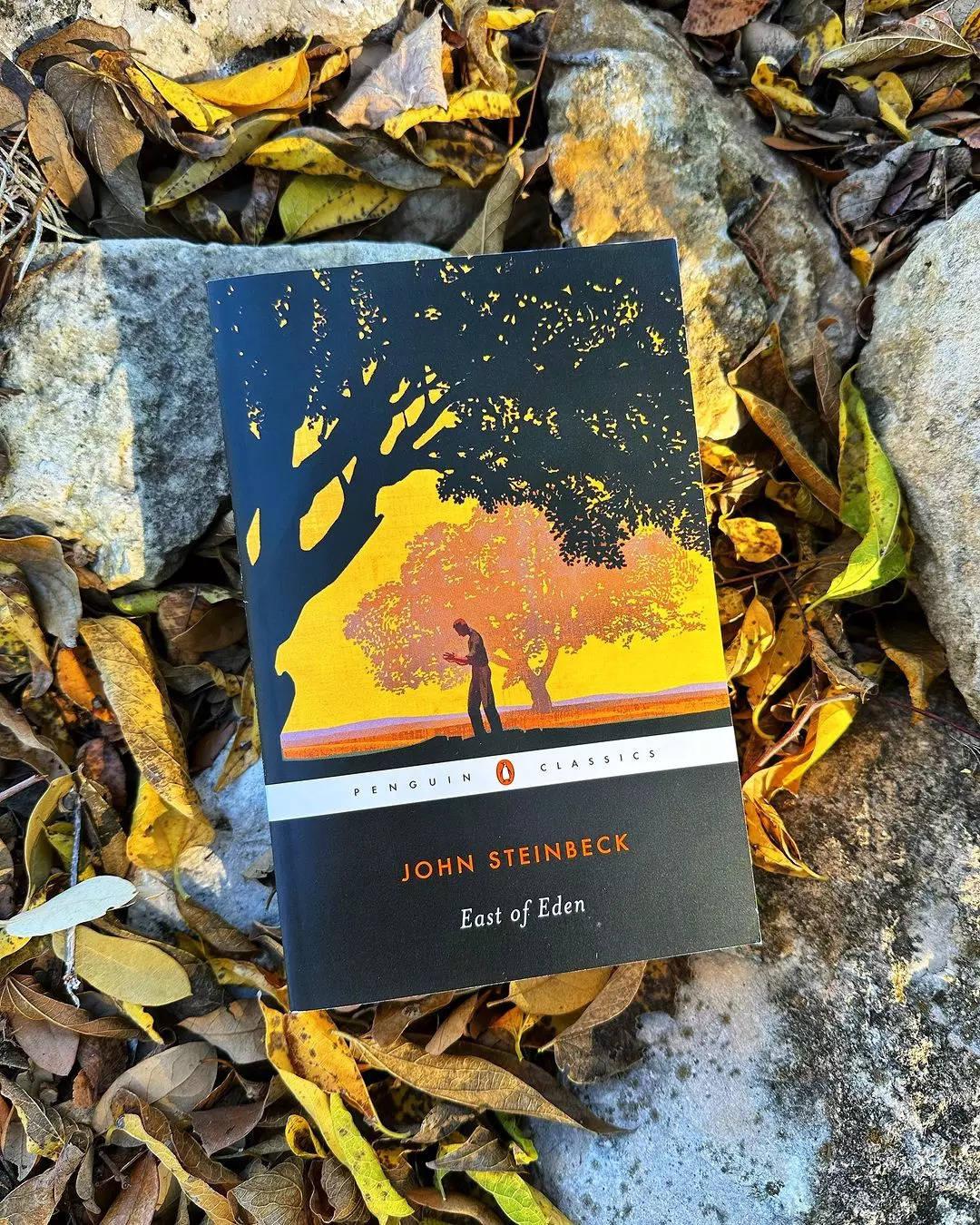
6. Rebecca by Daphne du Maurier
Daphne du Maurier’s ‘Rebecca’ is a haunting gothic novel that combines romance with psychological suspense. The story is narrated by the second Mrs. de Winter, who finds herself living in the shadow of her husband’s first wife, Rebecca, whose presence lingers throughout the grand Manderley estate. As the narrator uncovers dark secrets about Rebecca and her disappearance, the novel builds to a gripping and suspenseful climax. ‘Rebecca’ is a masterclass in atmosphere and tension.
7. Great Expectations by Charles Dickens
Charles Dickens’ Great Expectations is a coming-of-age story that follows the life of Pip, an orphan who dreams of rising above his humble beginnings. The novel explores themes of ambition, class, and personal growth as Pip navigates the complexities of Victorian society. Dickens’ vivid characters—from the enigmatic Miss Havisham to the kind-hearted Joe Gargery—and his critique of the class system make Great Expectations a timeless classic that resonates with readers of all ages.
8. Heart of Darkness by Joseph Conrad
Heart of Darkness by Joseph Conrad is a short novel that delves into the darkness of human nature and the horrors of colonialism. The story follows Marlow, a sailor who travels down the Congo River to find Kurtz, an ivory trader who has descended into madness. As Marlow journeys deeper into the heart of Africa, he is confronted with the brutal realities of imperialism and the capacity for evil in the human soul. Heart of Darkness is a powerful and disturbing exploration of moral ambiguity.
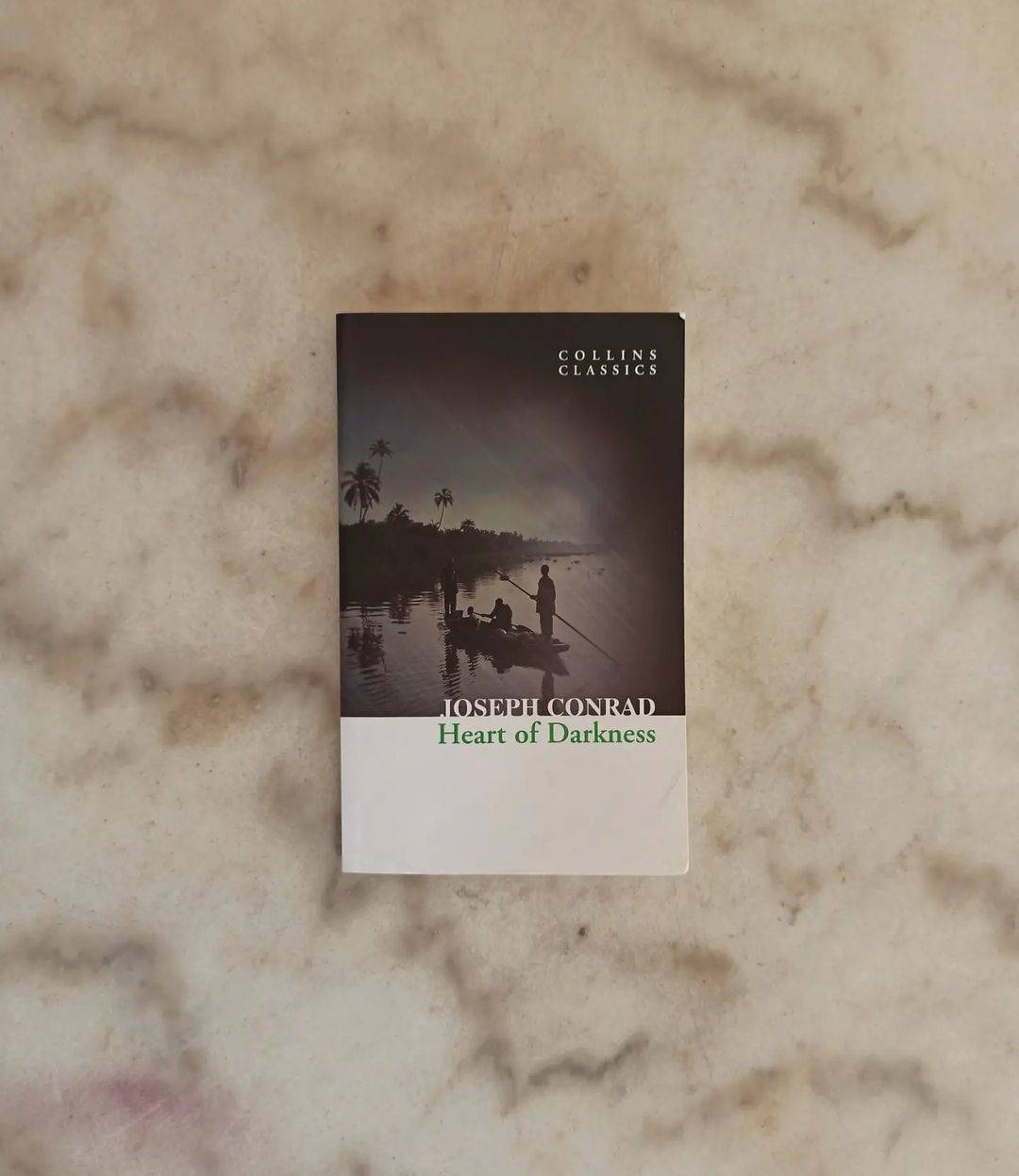
9. Middlemarch by George Eliot
George Eliot’s ‘Middlemarch’ is a richly detailed novel that explores the complexities of provincial life in 19th-century England. The novel follows the lives of several characters, particularly Dorothea Brooke, as they grapple with personal ambitions, social expectations, and moral dilemmas. Eliot’s keen observations of human behavior, her exploration of social change, and her complex, fully developed characters make ‘Middlemarch’ one of the greatest novels in the English language.
10. Siddhartha by Hermann Hesse
Siddhartha by Hermann Hesse is a spiritual novel that chronicles its main character’s journey in search of enlightenment. Set in ancient India, the novel explores themes of self-discovery, inner peace, and the meaning of life. Siddhartha’s journey takes him from asceticism to material wealth and back again, ultimately leading him to a deeper understanding of himself and the universe. Hesse’s lyrical prose and profound reflections on spirituality make Siddhartha a timeless and inspiring read.
11. The Bell Jar by Sylvia Plath
Sylvia Plath’s The Bell Jar is a semi-autobiographical novel that offers a powerful exploration of mental illness and the pressures faced by women in the 1950s. The novel follows Esther Greenwood, a young woman struggling with depression and societal expectations as she navigates her career and personal life. Plath’s evocative prose and unsparing portrayal of Esther’s descent into despair make The Bell Jar a deeply moving and important work of literature.

12. The Hobbit by JRR Tolkien
J.R.R. Tolkien’s “The Hobbit” is a beloved fantasy novel that introduces readers to the richly imaginative world of Middle-earth. The story follows Bilbo Baggins, a reluctant hero, as he embarks on an adventure with a group of dwarves to reclaim his homeland from the dragon Smaug. Along the way, Bilbo encounters trolls, elves, and the enigmatic Gollum, whose ring becomes central to Tolkien’s later works. “The Hobbit” is a charming tale of bravery, friendship, and the joys of adventure.
13. The Picture of Dorian Gray by Oscar Wilde
Oscar Wilde’s “The Picture of Dorian Gray” is a gothic novel that explores the consequences of vanity, hedonism, and the quest for eternal youth. The story follows Dorian Gray, a handsome young man who remains physically unchanged, while his portrait bears the marks of his moral corruption. Wilde’s witty and poetic prose, combined with his exploration of the dangers of living a life devoted solely to pleasure, make this novel a captivating and thought-provoking read.
14. The Sound and the Fury by William Faulkner
William Faulkner’s “The Sound and the Fury” is a challenging yet rewarding novel that explores the decline of the once-aristocratic Compson family in the American South. The novel is renowned for its innovative narrative structure, in which each section is told from the perspective of a different character, including the stream-of-consciousness technique. Faulkner’s exploration of time, memory, and the complexities of human experience make “The Sound and the Fury” an iconic work of modernist literature.
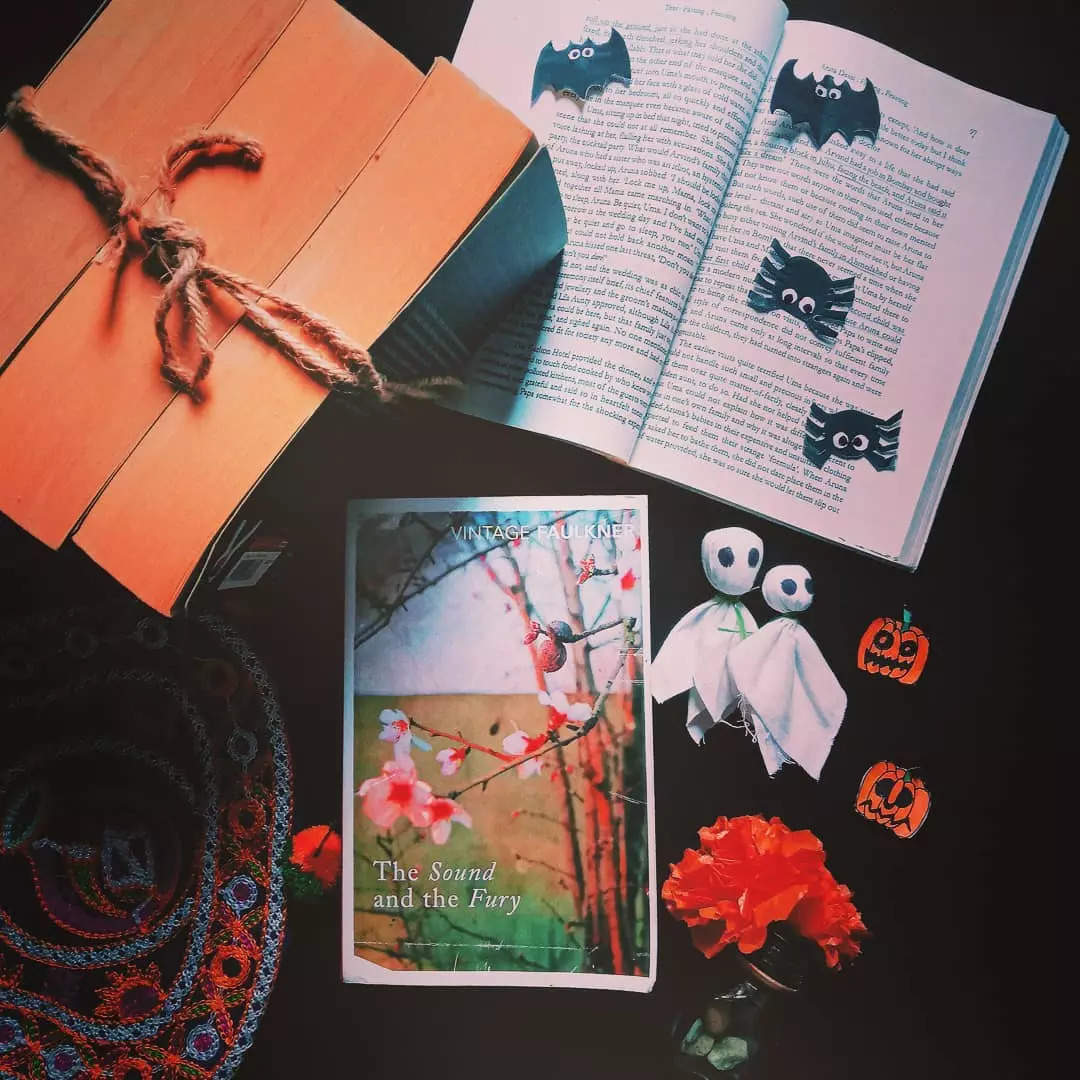
15. Their Eyes Were Watching God, by Zora Neale Hurston
Zora Neale Hurston’s ‘Their Eyes Were Watching God’ is a seminal work in African-American literature that tells the story of Janie Crawford, a mixed-race woman who embarks on a journey of self-discovery and empowerment. Set in the early 20th century, the novel explores themes of race, gender, love, and independence as Janie seeks to find her voice and live life on her own terms. Hurston’s lyrical prose and vivid depiction of the African-American experience make this novel a must-read classic.
These 15 classic books are more than just must-reads—they are pillars of literature that have shaped the way we understand stories, characters, and the world around us. Each of these novels offers unique perspectives, timeless themes, and unforgettable narratives that continue to inspire and challenge readers. Whether you’re rereading an old favorite or discovering a new one, these books deserve a place on every literature lover’s bookshelf—and serve as a testament to the enduring power of great stories.
Disclaimer:
The information contained in this post is for general information purposes only. We make no representations or warranties of any kind, express or implied, about the completeness, accuracy, reliability, suitability or availability with respect to the website or the information, products, services, or related graphics contained on the post for any purpose.
We respect the intellectual property rights of content creators. If you are the owner of any material featured on our website and have concerns about its use, please contact us. We are committed to addressing any copyright issues promptly and will remove any material within 2 days of receiving a request from the rightful owner.

